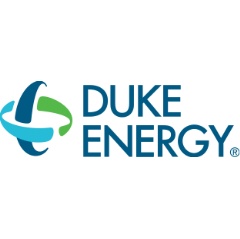Duke Energy ramps up efforts to protect customers from utility scammers
Duke Energy is ramping up efforts to protect customers from the long-running scam targeting customers of utility service providers across the country.
The company has launched a new multi-week social media campaign with content focused on identifying the tricks scammers use to get money from customers, and how customers can protect themselves. The company encourages the public to share these messages to help guard against scam activity.
“Scammers are becoming more sophisticated, and we are increasing our efforts to combat this crime and help customers look for signs of scam activity,” said Jared Lawrence, vice president of Revenue Services. “If we can condition customers to immediately hang up when these criminals call, we’ve won the battle. It is important that we not let our guard down especially as we enter another busy holiday season -- a time when scam activity in general is more prevalent.”
Under this scam, a customer receives an unsolicited phone call from an individual who falsely claims to be a Duke Energy representative. The scammer warns that Duke Energy will disconnect the customer’s electric service if the customer fails to make a payment – usually within a short timeframe.
Scammers have even duplicated the Duke Energy upfront Interactive Voice Response system, so when customers call back phone numbers provided by the scammer, it sounds like a legitimate Duke Energy phone number. Some of these criminals also use caller ID spoofing to replicate Duke Energy’s customer service number.
Red flags for scam activity
- The thief becomes angry and tells the customer his or her account is past due and service will be disconnected if a large payment isn’t made – usually within less than an hour.
- The thief instructs the customer to purchase a pre-paid debit or credit card – widely available at retail stores – then call him or her back to supposedly make a payment to Duke Energy.
- The scammer asks the customer for the prepaid card’s receipt number and PIN number, which grants instant access to the card’s funds.
How to protect yourself
- Duke Energy never asks or requires a customer with a delinquent account to purchase a prepaid debit card to avoid disconnection.
- Customers can make payments online, by phone, automatic bank draft, mail or in person.
- Customers with delinquent accounts receive an advance disconnection notification with the regular monthly billing – never a single notification one hour before disconnection.
- If you suspect someone is trying to scam you, hang up and call the local police then Duke Energy. Never dial the phone number the scammers provide.
Customers who suspect or experience fraud, or feel threatened during contact with one of these thieves, should contact local authorities, and then the Duke Energy phone number listed on their bill.
Enhancing ongoing efforts to educate the public
The company continues to enhance its efforts to educate the public. About 80 percent of customers who received a call and reported it to Duke Energy said they did not fall for the scam. In the initial stages of the scam activity, it is estimated that at least 50 percent of customers contacted were tricked.
Previous communications aimed to combat scammers and protect customers include bill messages and alerts, customer letters, online content, public service announcements, advertising, outbound calls and messaging on customer service telecommunication channels.
The company continues to work with law enforcement, other utilities, the media and has partnered with local attorneys general and Better Business Bureaus to denounce the scams.
Duke also continues to interview victims to detect any signs or clues that could break the case.
“We’re exploring all of the angles, analyzing customer reports, gathering additional information from customers, and sharing our observations with peer companies. We appreciate the public’s assistance in helping us spread the word about this scam through social media,” Lawrence said.
For more information visit www.duke-energy.com/StopScams or follow Duke Energy on Twitter, Facebook and LinkedIn to learn more.
Headquartered in Charlotte, N.C., Duke Energy is a Fortune 250 company traded on the New York Stock Exchange under the symbol DUK. More information about the company is available at: www.duke-energy.com.
( Press Release Image: https://photos.webwire.com/prmedia/2/200666/200666-1.gif )
WebWireID200666
This news content was configured by WebWire editorial staff. Linking is permitted.
News Release Distribution and Press Release Distribution Services Provided by WebWire.
